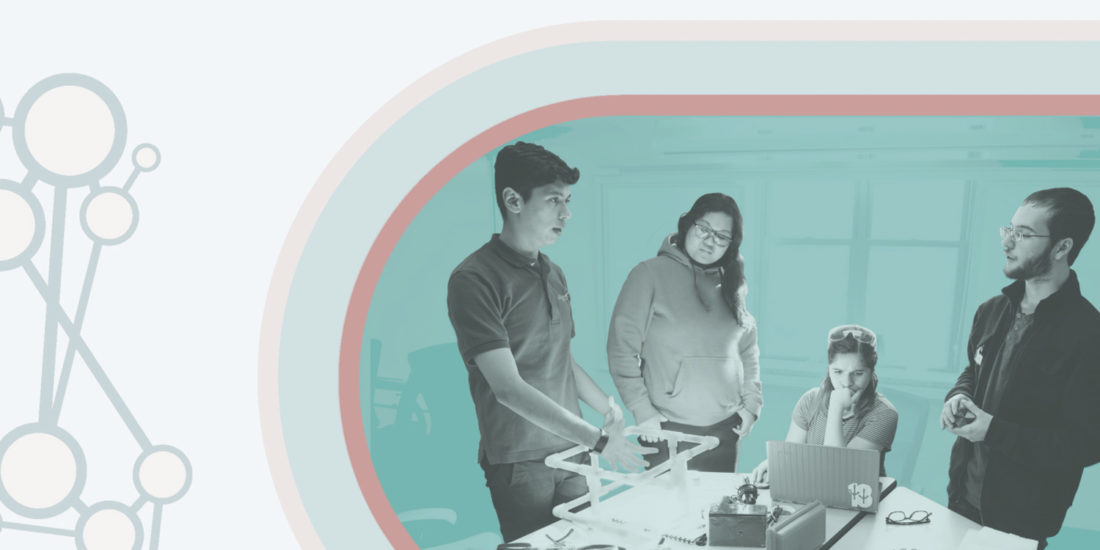Call for Case Studies on Authentic Learning and Knowledge Mapping for Open Source Publication
A collaborative effort of the Calhoun Center for Higher Education Innovation, The International Academic Forum (IAFOR), the Future Talent Council (FTC) and the Association of Public and Land-grant Universities (APLU)
While writing the Adaptive Lifelong Learning report, we identified several major gaps in existing knowledge and literature in two areas that were identified by multiple researchers as critical to implementing inclusive adaptive learning for a 21st century economy:
- Authentic learning
- Knowledge mapping across skills layers (domain-specific, domain-general and life skills)
In response to this identified need, working group 2 will solicit and collect from members and networks case studies exploring those two related, and interconnected areas. The goal is to develop an open source, integrated record of emerging practices in these two areas that can be used to greatly facilitate the development of adaptive learning as proposed in the report. The submitted case studies will be collected into a digital volume that will be edited and published by the Calhoun Center. We invite FTC, IAFOR and APLU to co-curate this volume with the Center. The volume will also be summarized and incorporated into a book on Point of Need Learning to be published in summer 2022.
We are primarily interested in case studies that can be supported by analyzed learning outcomes (either in quantitative or qualitative form or mixed methods). We propose a page limit of 6 pages per case study. All submitted case studies that meet the project criteria will be edited and annotated and included in the digital volume. However, we would greatly appreciate it if your organizations (APLU, FTA, IAFOR) reach out and solicit case studies from organizations and individuals that you know have a previous record in this space. We will seek case studies and examples of research and practice that focus on understanding and building experiences across ages, layers of skills and sectors (K-12, higher education, industry, community).
Submission rubric/criteria: 1. Case study of existing educational practice/program. 2. At least 25% of the submission has not been previously published elsewhere. 3. Six pages maximum. 4. Follows the conventions of standard English writing.
Below, we provide some working definitions of authentic learning and knowledge mapping that can help interested members of your network prepare and submit studies. However, these definitions are not exhaustive and may be adapted as we receive submissions.
Authentic Learning
We are interested in identifying different ways practitioners have sought to utilize authentic learning experience to understand (a) what skills exist in each learner, (b) the learning aspirations for each learner and (c) possible adaptive paths for connecting where a learner is to self-discovery and pursuing where a learner wants to go. We are particularly interested in authentic learning experiences that utilize knowledge mapping to connect a new, specialized topic to existing knowledge of diverse learners. We are interested both in individual examples of authentic learning as well as spiral learning curricula that utilize sequences of authentic learning experiences.
We seek to deepen knowledge of how to design authentic learning experiences that bring civic, business, and educational leaders to the table for the purpose of addressing the different knowledge, skills, and abilities needed for the future workforce. We therefore define authentic learning as instruction involving truly collaborative work that utilizes real-world problem solving, aligns with how learning occurs outside of the formal classroom, ensures fidelity either through simulation or real situations, and incorporates outside professionals’ expertise either as observable behavior or feedback on behalf of the learner.
Knowledge Mapping
We are primarily interested in case studies of knowledge mapping applications in two areas:
1. Leveraging knowledge mapping for basic skilling and reskilling
- Case studies of participatory processes used to identify domain-general and life skills that exist in communities with rich domain-specific skills from previous economies across all ages ( i.e. coal, mill, manufacturing or agricultural communities). (We provide at the end of this document an indicative list of domain-general and life skills from the Adaptive Learning report).
- Case studies where existing skills in underserved communities or in communities that lost jobs were identified and leveraged to create customized, authentic experiences for these communities in adaptive learning that could lead to employment in new and emerging workforce opportunities.
2. Leveraging knowledge mapping and wrap around services in upskilling and upward mobility
- Case studies where existing domain-general and life skills of workers have been used successfully in shortening paths to moving up within, and across, companies.
- Case studies where domain-general and life skills have been used successfully in shortening paths to learning within and across learning sectors (K-12, higher ed, community, industry). We are especially interested in case studies where existing domain-general skills are tapped to facilitate learning of new, domain-specific skills.
- Case studies of combining knowledge mapping with customized wrap around services (e.g., health care, food/safety) to facilitate learning participation and upward mobility.
List of life skills and domain-general skills:
In the Adaptive Learning Report, we categorize life skills as communication, collaboration, reflection, empathy, creativity, cultural agility, productivity, efficiency, self-direction, being respectful and existing with others.
We categorize domain-general skills as logic and deduction, quantitative and computational thinking, analytical thinking, problem solving, written and oral communication, data and information literacy, general memory, systems thinking, and sensorimotor such as visual and auditory perception.
The entire Adaptive Lifelong Learning for an Inclusive Knowledge Economy report can be downloaded from the Calhoun Center website or by clicking the button below.

